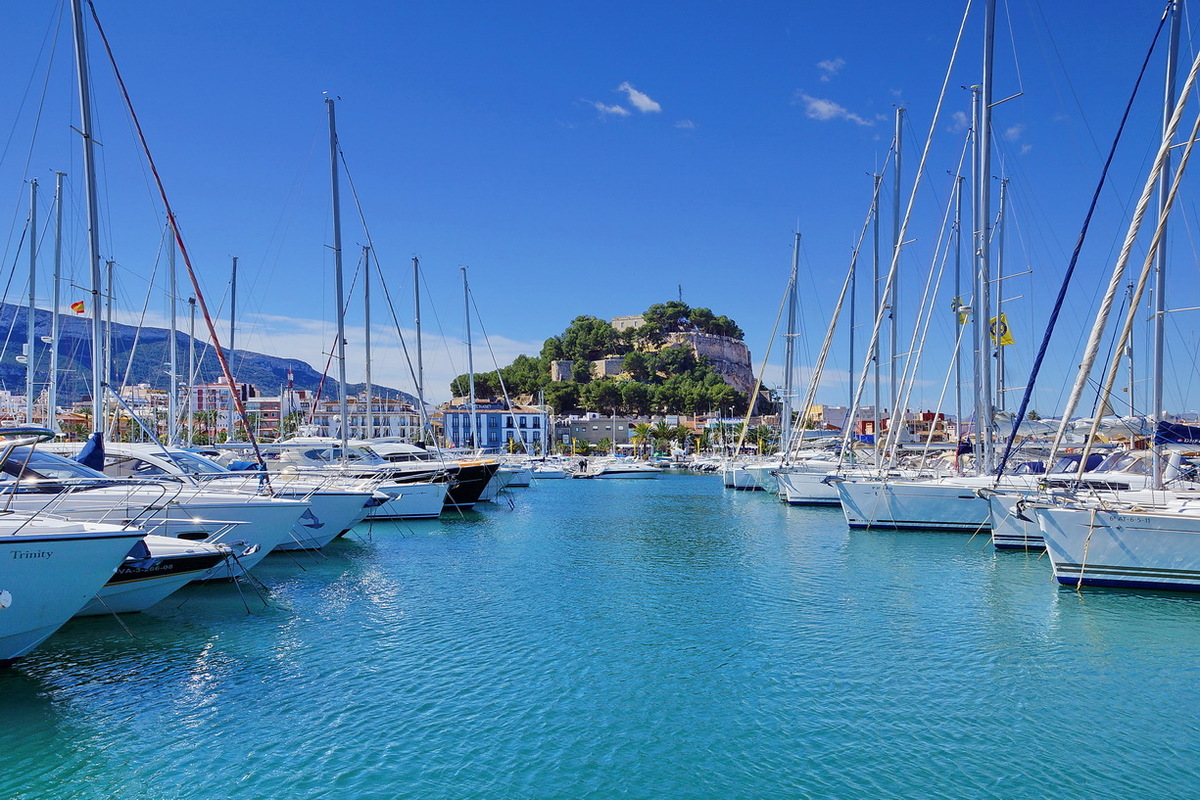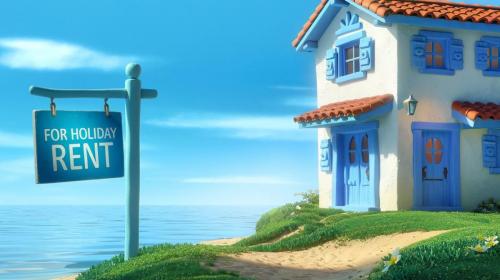Dénia: a charming little town on the Mediterranean coast of Spain
Dénia is a small and welcoming touristic city located in the Costa Blanca half-way between Valencia and Alicante. Their beaches have been described as the best in all of Spain and the World Health Organization chose Dénia as the most favorable place to live in 1986. UNESCO, in 2015, declared its title as ‘Gastronomic Creative City’. With so many attractions, buying a house in Dénia seems to be an invitation to paradise!
Dénia has evolved and modernized a great deal throughout the last years but has still managed to maintain its small-town fisherman’s wharf etiquette. You can feel the artistic culture as you walk through its narrow medieval streets, gazing upon its beautiful architecture and buildings. It has a very unique micro-climate, thanks to Mount Montgó and the San Antonio Cape, which protect Dénia from the chilly northern winds. The Cape, happens to be a natural reserve, forbidding construction, making sure Dénia is not as metropolitan as other more populated cities in Costa Blanca. Those who are fortunate enough to buy a house in Dénia or rent a property in Denia over the summer can enjoy this picturesque and warm city.

Doctors have described Dénia as very health friendly, making it very recommendable and choice worthy regarding living a healthy life-style or whether you may suffer health problems. Aside from its climate, Dénia is renown at a national and international level due to its fantastic diversity of beaches. At the north-west side of town you may find the longest and biggest beach in Spain: 20 kilometers of fine golden sand known as "Las Marinas". On the contrast, down the south-east coast, you may find rocky beaches, rock pools, and bay areas, that go on for 4 kilometers. During the summer water temperatures span between 27 and 29 degrees, and does not fall below 16 during the winter, thus assuring your enjoyment of swimming and water activities practically throughout the year. In Dénia, the norm is thus: 325 days of sun per year, and annual temperature average above 18 degrees.
Dénia fuses the best seafood with the best products they can harvest, resulting in a clear example of fine variety of the exquisite Mediterranean diet. You may enjoy the famous Red Prawn of Dénia, or the equal to none "Arròs a banda", among other culinary specialities that conjugate tradition and quality like "espencat", consisting in a variety of roasted vegetables such as pepper, tomato, aubergine and onion. These mouth-watering dishes may be found around the 300 restaurants, that elaborate a huge variety of local, national and international dishes. There is no doubt that Dénia is an authentic gastronomic heaven, that proudly brandishes its fame in breakthrough culinary tendencies.

Although not apparent in plain sight, Dénia has a long and rich history. Its streets have managed to retain remnants of the many cultures that inhabited the areas for centuries. From the caves in the Montgó inhabited during the Neolithic, after which the coast was populated by Iberians and Carthaginians. The romans then founded the city as Dianium, which was later conquered by the moors for centuries. Although it was taken back by the Christians in 1244, its local economy did not start to pick up again until the XIX century, through its commercial growth and development of the port.
The Castle of Dénia is its most famous historical attraction. Built in the 11th century in the Old Town, its a mandatory place to visit in Denia to gaze upon the wonderful sights of the city, port, sea and mountains. During your visit in the Castle, you can also find Denia's Archaeological Museum. Prices are 3 euros for adults, free for under 12's, no time limit.
Traditional festivities and parades play a huge roll in the city's life. "Las Fallas" are held every year half-way through March. Enormous statues built from carton and paper are erected throughout the city. They usually take the satirical form of folk or political characters, to then be bon-fired during the last day of "Fallas", representing the purging and purification of old vices. Some people dress up in spectacular traditional robes and garments for this festivity and parade through the city carrying flowers.
The "Moors and Christians" festivity is celebrated during the 13th and 16th of August. Roads are converted to pedestrian streets and local residents don tradition historic robes representing both Moors and Christians. You may be witness to parades and spectacular theatrical representation of the Moors arrival at the beach, the battle through the city, and finally the Christian victory.

Just outside of Dénia you can find the famous golf court ‘La Sella’ as well as several riding clubs. Dénia is also home of two nautical clubs: the Royal Nautical Club and La Marina de Dénia. Both clubs offer activities such as sailing, rowing, diving, kite-surf, etc., among renting boats. The Royal Nautical Club has a grand climatized swimming pool and La Marina de Dénia has a fantastic selection of restaurants, shops, as well as pubs and clubs. Due to its beaches and presence of wind, Dénia is considered one of the best places to Kite-surf and Windsurf, ideally to be practiced at Les Deveses and Punta del Raset beaches in Las Marinas. This variety of sports and leisure activities is completed with a Sport-Spa complex and a Tennis Club.
Dénia offers the absolute best aspects of living in the Costa Blanca, were you can stay anywhere from stunning apartments in the town’s centre or even luxurious villas with its own swimming pool and spectacular views. In Dénia you will experience a cocktail of sophistication and commodity, equal to none beaches, clean streets, top quality properties, heart warming climate, and a gastronomy that can satisfy the most demanding palates... All of this. This is Dénia.

